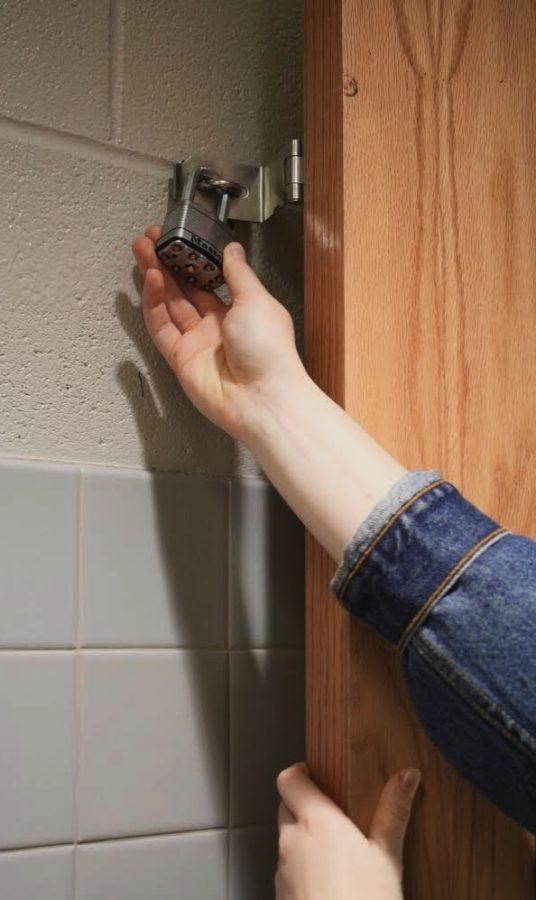Private bathrooms no more
Langley’s bathrooms are once again locked – open.
They’ve tried locking and closing the doors. They’ve tried stationing security guards inside. Now, Langley is taking the next step to prevent the rampant property destruction of the school’s bathrooms: during the first week of March, all of the boys’ bathrooms were opened and locked in the open position in order to deter students from vandalizing school property inside.
“Kids have been going into the bathrooms and tearing down towel dispensers, defacing stalls with racist imagery, and purposely making the toilets overflow,” School Resource Officer John Thomas said. “All in all, it’s thousands of dollars in damage.”
Though the reasoning is valid, some Langley students are taking issue with the implications: “it’s intrusive,” senior Pierre Quan said of the open-door policy. “Some of [the bathrooms] have s-curves, thankfully, but others don’t and I think it’s excessive.”
Whisperings of sexism have been making their way through the school, but Thomas quickly dispelled them: “it has nothing to do with boys vs. girls… we have not had one single instance of property destruction in girls’ bathrooms. Not one,” Thomas said.
Shortly thereafter, the girls’ bathroom doors were permanently opened as well to address complaints of inequality. “I understand the argument for opening the girls’ doors, but I do not think doing so is fair,” senior Valerie Templin said. “Punishing girls for something beyond their control is unjustifiable… it feels like somebody’s always watching, or that privacy is a privilege.”
As a whole, Langley students have mostly not taken the rule adjustment well. “The decision to open the bathroom doors has (negatively) impacted the faculty-student relationship,” Templin said. “I find it discouraging that some students vandalized our new and expensive school, but also the administration’s decision to punish everyone.”
Collective punishment is nothing new to Langley’s upperclassmen: “Concerning privacy, [locking the doors open] is a pretty uncomfortable way to try and solve the problem,” Quan said, “especially if you’re one of the many students who had nothing to do with it in the first place.”
“People (again) are being mislabeled and unjustly punished, which has led to a general lack of respect for everyone involved,” Templin said.
Unfortunately, an unpopular and controversial solution may just be the only solution. “Ultimately, I get why [the administration] is doing this,” Quan said. “Property is being destroyed, and this is the best way to prevent it – besides putting cameras in the bathrooms, which obviously isn’t an option.”
“Either we open the bathroom doors, or we have to do something else that’s much less efficient, like having staff on bathroom duty – and what kind of job would that be?” Thomas said. “[Opening the doors] is just the simplest way to make sure that nothing is being broken. It has to be done; some of that equipment is expensive. And while we’d like to avoid the cost, the people who really end up paying for students’ misuse of the bathrooms are the janitors.”
“The school has definitely found a way to reduce property destruction, but at the cost of students’ sense of privacy,” Quan said. “Hopefully the administration can talk with the students and try to work out some sort of compromise.”


